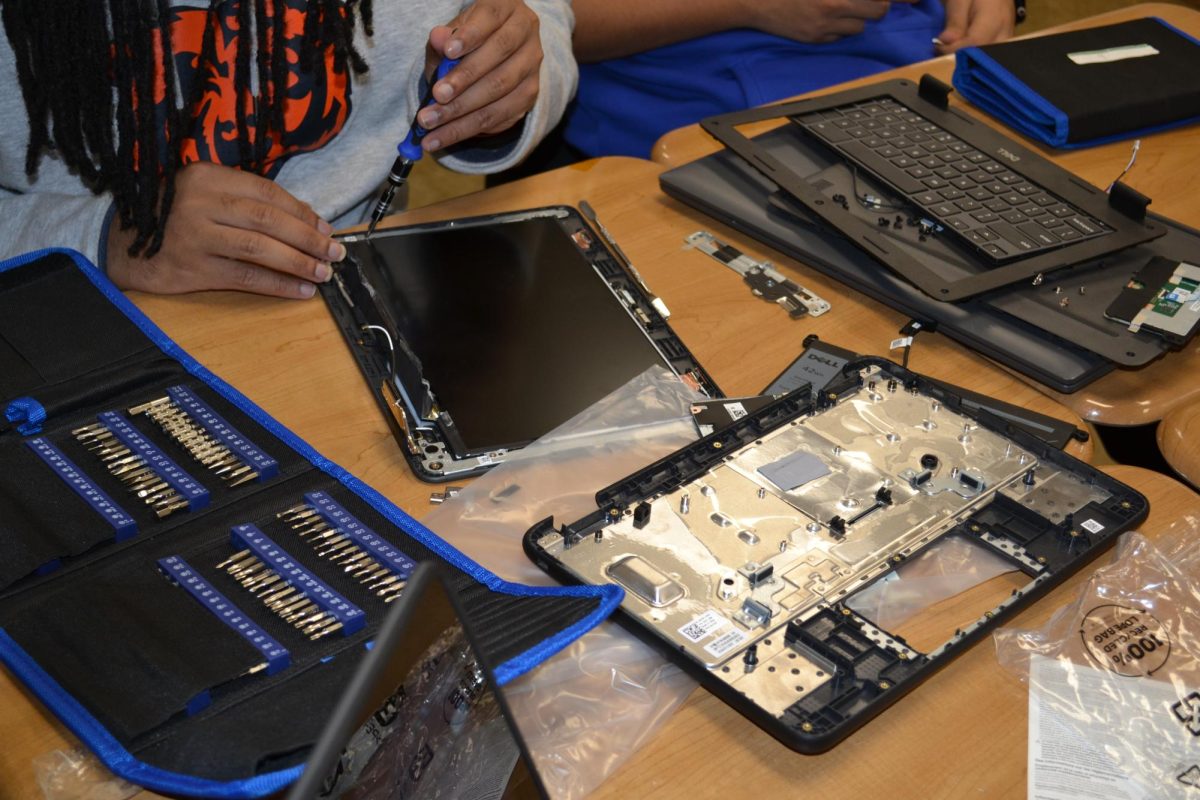Leniency lessens learning struggles
In elementary school, clip charts acted as introductions to discipline that were easy for children to understand. A clip down resulted in a negative consequence, whereas a clip up indicated good behavior and would often result in a compliment or reward.
In elementary school, students were taught that middle school would focus more firmly on rules and consequences, so the clip system was implemented to emulate the feeling of these future punishments on a more elementary-friendly level. After junior high is completed, however, students will find that high school tosses aside the rules and instead relies on trust of the student body.
Students who truly value their education will take responsibility and eliminate distractions. However, maintaining a positive mindset can pose difficulty for those beset by stressors outside of school.
Leniency benefits those who are lagging behind, and although it may cause frustration for students who complete work quickly, having extra time to work on assignments allows for these students to review and evaluate their work, making sure it is of their best effort.
High school is meant to act as a bridge to higher education or a career, so being tyrannical with due dates and expectations may encourage students not to attend higher schooling in fear that they will only struggle more.
Elementary and middle school policies pave the road for students to learn listening and efficiency early on. Colleges may not condone turning in assignments weeks late or beating around the bush with excuses, as it is expected that students complete their work efficiently without falter.
Unfortunately, extending due dates and accommodating on simple assignments such as homework worksheets may lead to students relying on leniency to complete their work. This is where trust and responsibility take priority; students must learn through high school to challenge themselves if need be and use the time allotted for assignments rather than rushing to finish a major project in a day.
These suggestions are not indicating that a classroom chocked full of rules is not beneficial for a select few students, but leniency allows for a slower pace and thus higher comprehension for students.
Less leniency lifts learners
In today’s American school system, students are given numerous variations of support that they can utilize to help them achieve the grades they desire. Whether it is test retakes, corrections, study guides, or other materials. Students can easily maintain a higher grade level with minimum effort.
I feel that students are not held to a standard that truly promotes growth within their learning. Since the pandemic, teachers have switched from their typical classroom setting and altered into a more remote environment.
Although the pandemic has come and gone, resources such as Google classroom have not. It also seems that the lowered standards have not risen back up.
While google classroom is convenient and useful, it does not allow physical copies of worksheets for students to utilize. According to Science Daily, writing down information increases memorability. The absence of handwriting creates a difficulty for students to retain information.
Also, the convenience of google being in the same vicinity as assignments can be tempting to students and they may end up copying answers on their assignments. This plagiarism does not intellectually stimulate the minds of students.
These lowered standards teach students how to maintain grades rather than teaching students the real material. It is very common for some students to wait until the end of the semester to turn in assignments and retake tests and bring their failing grades up to passing. Even if they pass on paper, the students do not truly understand the class.
With the lowered standards and leniency, students may not be motivated to put in their full effort into learning. If standards were raised then students would be encouraged to complete assignments on time, study for tests, and would end up earning higher grades.
With this motivation, students would be prepared for real world expectations and experiences and not have such dramatic habits to break when they grow up.






